The International Court of Justice is composed of 15 judges elected to nine-year terms of office by the United Nations General Assembly and the Security Council. These organs vote simultaneously but separately. In order to be elected, a candidate must receive an absolute majority of the votes in both bodies. This sometimes makes it necessary for a number of rounds of voting to be held.
In order to ensure a degree of continuity, one third of the Court is elected every three years. Judges are eligible for re-election. Should a judge die or resign during his or her term of office, a special election is held as soon as possible to choose a judge to fill the unexpired part of the term.
Elections are held in New York (United States of America) during the annual autumn session of the General Assembly. The judges elected at a triennial election commence their term of office on 6 February of the following year, after which the Court holds a secret ballot to elect a President and a Vice-President to hold office for three years.
All States parties to the Statute of the Court have the right to propose candidates. Such proposals are made not by the government of the State concerned, but by a group consisting of the members of the Permanent Court of Arbitration (see History) designated by that State, i.e. by the four jurists who can be called upon to serve as members of an arbitral tribunal under the Hague Conventions of 1899 and 1907.
In the case of countries not participating in the Permanent Court of Arbitration, nominations are made by a group constituted in the same way.
Each group can propose up to four candidates, no more than two of whom may be of its own nationality, while the others may be from any country whatsoever, regardless of whether it is a party to the Statute or has declared that it accepts the compulsory jurisdiction of the ICJ. The names of candidates must be communicated to the Secretary-General of the United Nations within a time-limit of his/her choosing.
Judges must be elected from among persons of high moral character, who possess the qualifications required in their respective countries for appointment to the highest judicial offices, or are jurisconsults of recognized competence in international law.
The Court may not include more than one national of the same State. Moreover, the Court as a whole must represent the main forms of civilization and the principal legal systems of the world.
Once elected, a Member of the Court is a delegate neither of the government of his own country nor of that of any other State. Unlike most other organs of international organizations, the Court is not composed of representatives of governments. Members of the Court are independent judges whose first task, before taking up their duties, is to make a solemn declaration in open court that they will exercise their powers impartially and conscientiously.
In order to guarantee his or her independence, no Member of the Court can be dismissed unless, in the unanimous opinion of the other Members, he/she no longer fulfils the required conditions. This has in fact never happened.
When engaged in the business of the Court, the Members of the Court enjoy privileges and immunities comparable with those of the head of a diplomatic mission. In The Hague, the President takes precedence over the doyen of the diplomatic corps, who is followed by the Vice-President, after which precedence alternates between judges and ambassadors.
Each Member of the Court receives an annual salary consisting of a base salary (which, for 2023, amounts to US$191,263 and post adjustment, with a special supplementary allowance of US$25,000 for the President. The post adjustment multiplier changes every month and is dependent on the United Nations exchange rate between the United States dollar and the euro. On leaving the Court, judges receive an annual pension which, after a nine-year term of office, is equal to half the annual base salary.
Current Members
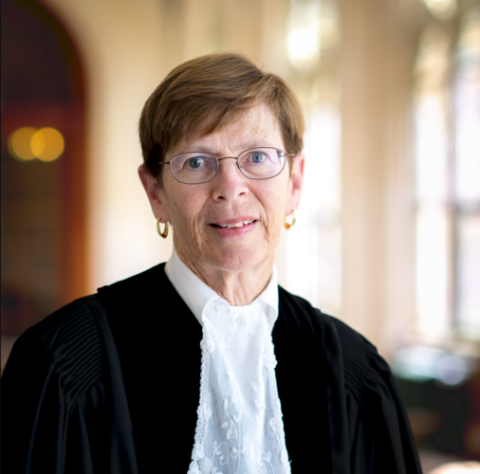
President Joan E. DONOGHUE
United States of America
Member of the Court since 9 September 2010; re-elected as from 6 February 2015; President as from 8 February 2021
Biography

Vice-President Kirill GEVORGIAN
Russian Federation
Member of the Court since 6 February 2015; Vice-President as from 8 February 2021
Biography

Judge Peter TOMKA
Slovakia
Member of the Court since 6 February 2003; re-elected as from 6 February 2012 and as from 6 February 2021; Vice-President of the Court from 6 February 2009 to 5 February 2012; President of the Court from 6 February 2012 to 5 February 2015
Biography
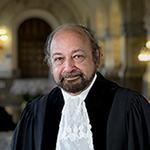
Judge Ronny ABRAHAM
France
Member of the Court since 15 February 2005; re-elected as from 6 February 2009 and as from 6 February 2018; President of the Court from 6 February 2015 to 5 February 2018
Biography
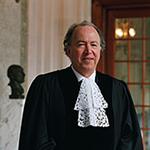
Judge Mohamed BENNOUNA
Morocco
Member of the Court since 6 February 2006; re-elected as from 6 February 2015
Biography
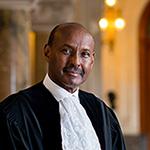
Judge Abdulqawi Ahmed YUSUF
Somalia
Member of the Court since 6 February 2009; re-elected as from 6 February 2018; Vice-President of the Court from 6 February 2015 to 5 February 2018; President of the Court from 6 February 2018 to 8 February 2021
Biography
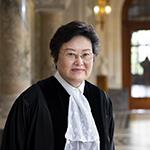
Judge XUE Hanqin
China
Member of the Court since 29 June 2010; re-elected as from 6 February 2012 and as from 6 February 2021; Vice-President of the Court from 6 February 2018 to 8 February 2021
Biography

Judge Julia SEBUTINDE
Uganda
Member of the Court since 6 February 2012; re-elected as from 6 February 2021
Biography

Judge Dalveer BHANDARI
India
Member of the Court since 27 April 2012, re-elected as from 6 February 2018
Biography
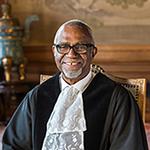
Judge Patrick Lipton ROBINSON
Jamaica
Member of the Court since 6 February 2015
Biography

Judge Nawaf SALAM
Lebanon
Member of the Court since 6 February 2018
Biography
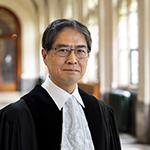
Judge IWASAWA Yuji
Japan
Member of the Court since 22 June 2018; re-elected as from 6 February 2021
Biography
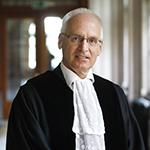
Judge Georg NOLTE
Germany
Member of the Court since 6 February 2021
Biography
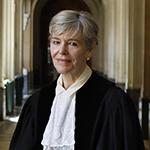
Judge Hilary CHARLESWORTH
Australia
Member of the Court since 5 November 2021
Biography
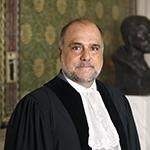
Judge Leonardo Nemer Caldeira BRANT
Brazil
Member of the Court since 4 November 2022
Biography
ICJ

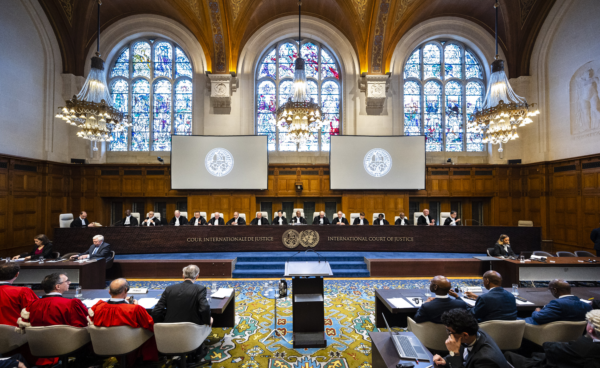
Leave a Reply
You must be logged in to post a comment.